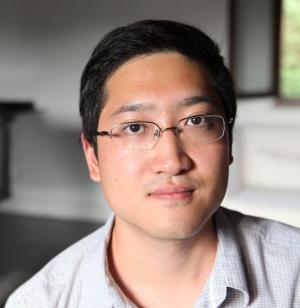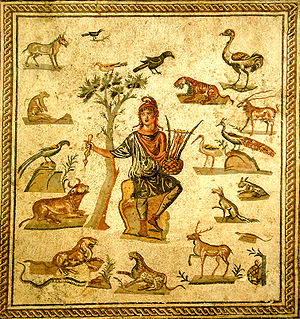by Mike Telin

On Thursday, March 31 at 7:30 pm and Saturday, April 2 at 8:00 pm at Severance Hall, Franz Welser-Möst will lead The Cleveland Orchestra in performances of Cheung’s Lyra. The program will also include Thomas Adès’s Concentric Paths (for violin and orchestra) with soloist Leila Josefowicz, as well as orchestral excerpts from Wagner’s Götterdämmerung. On Wednesday, March 30 at 6:30 pm, Anthony Cheung will present a lecture in Bibbins 224 at the Oberlin Conservatory.
Born in San Francisco in 1982, Anthony Cheung is the current Daniel R. Lewis Young Composer Fellow of The Cleveland Orchestra. His many awards include the Rome Prize and both First Prize and Public Prize at the 6th International Dutilleux Competition. He is also co-founder, Artistic Director, and pianist of the Talea Ensemble in New York. Last week he received critical praise in the New York Times for his new work Elective Memory, written for violinist Jennifer Koh as a response to Beethoven’s Op. 96 violin sonata. In addition to composing and performing, Cheung serves as Assistant Professor of Music at the University of Chicago.
During a recent telephone conversation Cheung described Lyra as a “freewheeling fantasy on the themes of the Orpheus myth, but also a commentary on the imaginations of composers over the past four hundred years who have been inspired by the myth.”
Scored for large orchestra and lasting 21 minutes, Lyra begins with the harp quoting the opening chord of Beethoven’s Piano Concerto No. 4. “I do have a fascination with that chord, but also with the entire piece,” Cheung said. “I am a pianist. I’ve played the concerto, and I find it to be one of the most compelling and beguiling works of Beethoven.”
Commissioned by the New York Philharmonic with support of the Marie-Josée Kravis Prize for New Music, Lyra is dedicated to the memory of Henri Dutilleux. “The commission came about because Dutilleux had received the Kravis prize and as a result, he was to write a new piece for the Philharmonic. At that point he was 96 years old and not composing very much, so he very generously asked if he could share the award with three other composers. He was on the jury for a competition I had won back in 2008, and he remembered me and put my name forward. The Philharmonic requested scores, and then agreed to commission me on Dutilleux’s behalf. I’m forever grateful to him.”
When he received the commission, Cheung had no idea what other works would be included on the concert. “I don’t always make it a point of responding to the other pieces on the program — in the case of Jenny Koh’s piece, she wanted me to respond to the Op. 96 sonata — but for this commission, I was only told that it would be on a Beethoven festival.”
Once Cheung realized that his new work would be on a program with Beethoven’s piano concertos Nos. 1 and 4, he knew where his writing would take him. “I’ve always been struck by the fourth concerto because of its melodic, pastoral, and intimate nature. It’s also been fodder for the imaginations of composers and musicologists like Joseph Kerman and Owen Jander, who think the entire concerto is a retelling of the Orpheus myth.”

Another inspiration for using the chord in the way that Cheung did can be traced to his piano studies with Robert Levin while at Harvard. “He’s a big hero of mine, and he made a recording of the concerto with John Elliot Gardiner, in which he reads all of this Orpheus-inspired stuff into his interpretation. In the second movement Levin rolls each of the chords, and in the first movement, he rolls the opening G-major chord (imitating Orpheus playing his lyre). It’s notoriously difficult to play, and I remember him telling me that you can think about the positioning of the hands, or you can just roll the chord as if it were a harp. So in a way, Lyra is almost a homage to Levin as well.”
Cheung also incorporates into the piece electronic samplings of the Chinese guzheng, the Turkish kanun, and the West African kora, among other strummed instruments, which he said represent the magical properties of music in all cultures. The electronics also include strands of Orpheus-inspired music from the past 400 years. “I like to call it a mash-up of the many different strands of the repertoire, beginning with the most famous, Monteverdi’s L’Orfeo. I’ve taken the openings of six or seven recordings and electronically re-tuned them as close as possible while still allowing for small differences in pitch, so you do get a ghostly effect.”
Published on ClevelandClassical.com March 28, 2016.
Click here for a printable copy of this article



